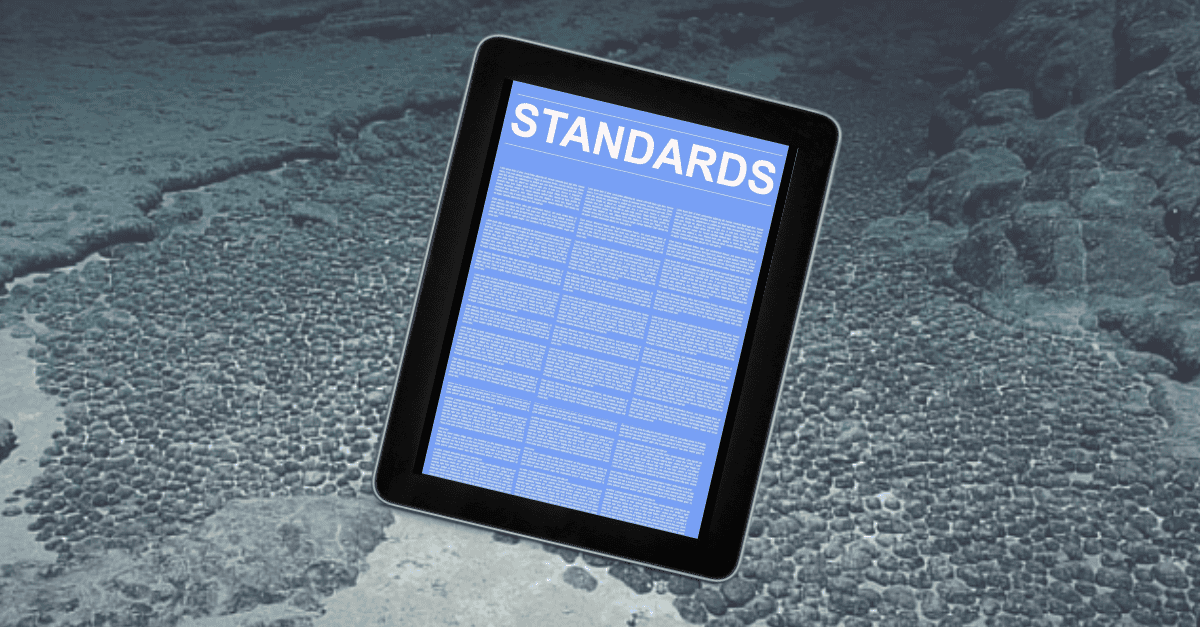It’s no secret that many of our world’s most robust environmental laws were born out of dire missteps — people hurt, land and water contaminated, the ozone layer depleted, and air quality diminished. We’ve learned from mistakes in many jurisdictions, and implemented strong legislation to protect ourselves and the natural environment.
So, what do we do with a new industry, like deep sea mining (DSM), that hasn’t yet made mistakes to learn from? We can’t learn from history, so we have to predict and take a conservative approach, aiming for even more protection than we might need.
To say this presents a challenge is an understatement, not only because we have to predict impacts but also because of the jurisdictions in question. This is an international issue, with many countries coming together to support legislation in international waters (International Seabed Authority, established by UNCLOS), and a growing number of countries developing mining regulations for their own waters (ie. Cook Islands SBMA, United States BOEM). In addition, a wide range of stakeholders may struggle to have their input adequately understood or represented in the relevant jurisdiction(s).
Through extensive stakeholder consultation, a 2022 World Economic Forum (WEF) publication identified that most stakeholders agree that sound stewardship of deep sea minerals is important. However, the definition of terms is wide-ranging.
“While general principles for sound stewardship are aligned, there are no commonly agreed benchmarks on, for instance: what approaches could be considered precautionary; when risk appreciation could be considered comprehensive; when research could be considered thorough; what environmental protections could be considered effective; or how the requirements for each might vary between phases of operations.”
– Decision-Making on Deep-Sea Mineral Stewardship: A Supply Chain Perspective, (WEF, 2022)
Regulators set requirements for exploration and exploitation, from what baseline information is collected to how test mining is monitored, through the exploitation (mining) application process and reporting obligations. However, since there are various jurisdictions with different rules and languages, what is the mechanism for holding everyone accountable to the same set of best practices?
DSM Standard
I’ve had the pleasure of speaking with folks from across the world who feel strongly that all stakeholders would benefit from a DSM standard, similar to standards for terrestrial mining, like the Initiative for Responsible Mining Assurance (IRMA).
Graham Lee, an independent expert on mineral sustainability and author of the 2022 WEF publication quoted above, describes the situation this way, “A voluntary sustainability standard for DSM would be wholly complementary to the regulatory work being done by the ISA and in national jurisdictions. Voluntary standards provide a framework for diverse stakeholder groups to collaborate on an equal footing, and develop common ESG [environmental, social, and governance] norms. Considering how polarized the DSM debate has become, such an initiative seems sorely needed.” His work provides a jumping-off point for such a standard in the form of scope recommendations. (WEF, 2022, recommendations, page 47)
These kinds of standards exist in so many fields and have a range of benefits when done well, including:
- Equitable stakeholder representation
- A common understanding of best practices for all parties
- Self-assessment tools and third-party assessments
- Publicly available results of assessment process (transparency)
- Continual improvement mechanisms & accountability
DSM Reporting Framework
One initiative that has already taken off within the DSM industry is a reporting framework called the “Marine Minerals ESG Handbook”, headed by DNV. This initiative was spearheaded by the DSM industry, seeking a reporting standard that supports transparency and accountability. The final Handbook — set to be released in 2024 — is the result of significant consultation within and external to their reference group over multiple drafts. The data collected for this type of reporting is likely to make up a large portion of the data required for auditing a company’s operations to a future DSM standard.
Working Together
Impossible Metals strongly supports the development of an international standard for DSM. If you’re interested in chatting about a DSM standard or would like to be connected with others who are working toward that goal, please contact me anytime at [email protected].

